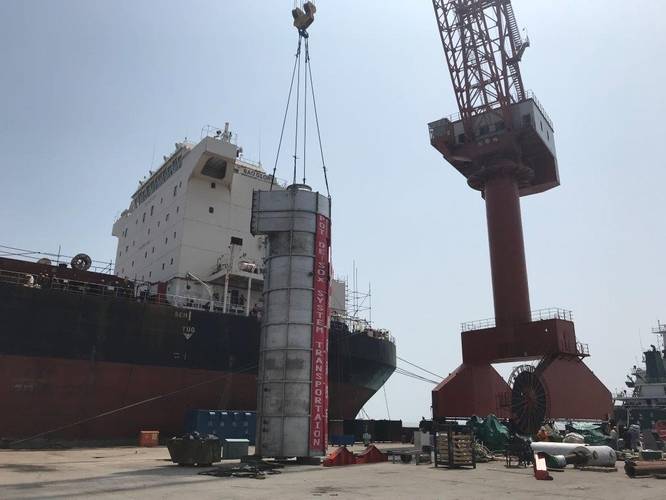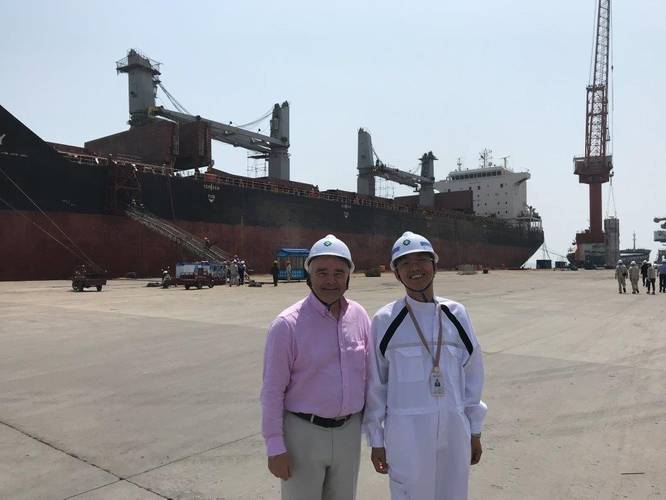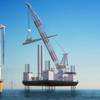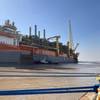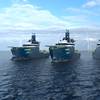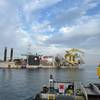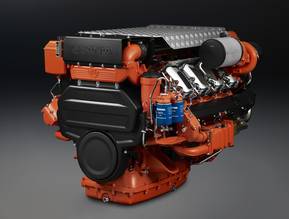CTG Wash Water Monitor Installed on Scrubber Retrofit in China
A Sea Sentry wash water monitoring system for ship exhaust gas cleaning systems from maritime sensors manufacturer Chelsea Technologies Group (CTG) has been installed in a Shandong Pure Ocean Technology scrubber, which has been retrofitted to Liberian-flagged bulk carrier BAO Glory, at the Weihai Xinhong shipyard in Weihai, China.
The installation represents one of the first scrubber retrofits to be carried out in a Chinese shipyard, a reflection of the industry-wide acceleration in the global scrubber market, CTG said.
The installation of scrubbers is increasingly seen an attractive compliance option that affords owners and operators the opportunity to continue to burn Heavy Fuel Oil (HFO) at a lower cost. A recent report from Lloyd’s Register stated that an expected 1,000 to 1,500 vessels will be fitted with scrubbers by 2020, with order slots for installation ahead of the implementation of the global sulphur cap nearing capacity. With limited time remaining and with installation capacity becoming scarce, yards in China will see increased uptake in scrubber installations as the government seeks to bring capacity in line with demand.
While the economic case for installing scrubbers is clear for many vessel types and payback period is relatively short, scrubbers are a costly capital expenditure – ranging from $2 million to $6 million per unit – and so it is crucial that compliance with environmental regulations can be proven. All varieties of wet scrubber systems use wash water which must be monitored at all times to avoid discharges that may exceed regulations and damage the environment. With an increasing number of scrubber units installed across the global shipping fleet, it is essential to ensure there is an accurate and robust monitoring capability in place to ensure compliance with wash water regulations, CTG said.
CTG’s Sea Sentry provides a fully autonomous wash water monitoring system, which monitors both the water inlet and outlet of wet exhaust gas scrubber systems. The system has the ability to accurately measure the polycyclic aromatic hydrocarbon, absorbance, turbidity (to ISO 7027: 1999), temperature and pH of scrubber wash water, and can monitor open-loop, closed-loop and hybrid scrubber systems, setting the gold standard for accurate wash water monitoring.
Dr. Brian Phillips, managing director, Chelsea Technologies Group, commented, said, “Scrubbers are an attractive option for many vessels assessing compliance solutions ahead of 2020, given the expected disparity in fuel costs between HFO and compliant fuels. For those taking the decision to invest in scrubbers, it is critical that they plan ahead and that all aspects of scrubber operations are considered ahead of installation.
“For vessel operators, it is essential to work with knowledgeable experts to receive the training required to operate new systems, along with the understanding they need to be able to interpret and apply the data, and prove compliance. Chelsea is working with leading scrubber manufacturers to ensure that shipowners who are taking the decision to invest in scrubber technologies have easy access to all the data they need to accurately prove compliance with wash water regulations, allowing companies to stay ahead of regulations and continue to trade across the globe.”
Accurate monitoring for compliance with environmental regulations is a prerogative for the international shipping industry in preparation for the 2020 global sulphur cap. Owners and operators are under increasing scrutiny to not only install costly compliance technologies but also to provide accurate data to demonstrate compliance.





